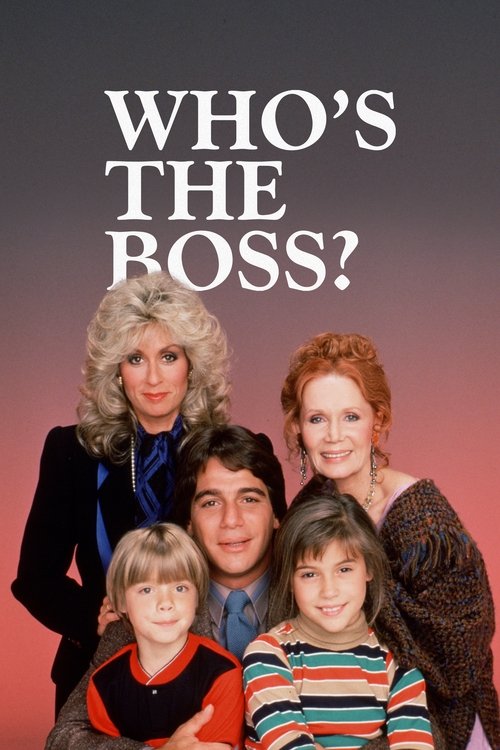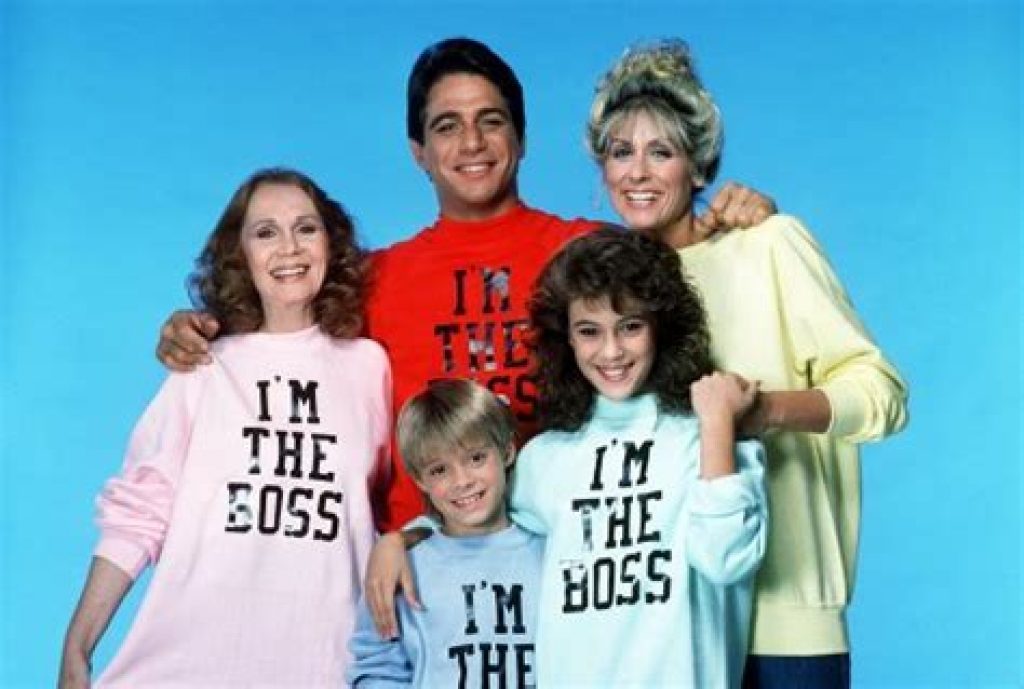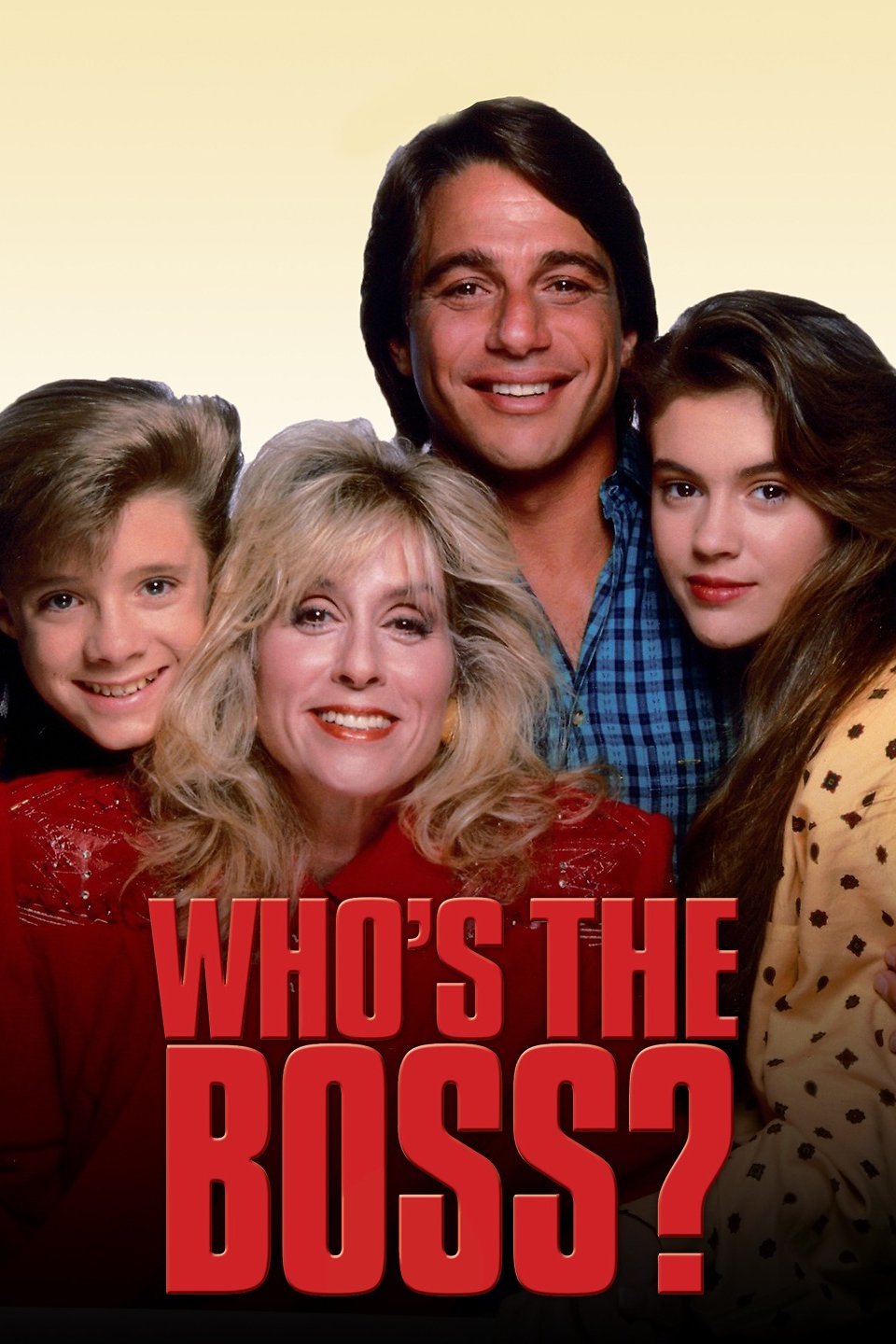Who’s the Boss?: A Look Again at a Tv Traditional That Nonetheless Resonates
Associated Articles: Who’s the Boss?: A Look Again at a Tv Traditional That Nonetheless Resonates
Introduction
On this auspicious event, we’re delighted to delve into the intriguing subject associated to Who’s the Boss?: A Look Again at a Tv Traditional That Nonetheless Resonates. Let’s weave fascinating data and provide recent views to the readers.
Desk of Content material
Who’s the Boss?: A Look Again at a Tv Traditional That Nonetheless Resonates

"Who’s the Boss?" wasn’t only a sitcom; it was a cultural phenomenon. Debuting on ABC in 1984 and operating for eight seasons, the present captured the hearts of audiences with its witty writing, memorable characters, and surprisingly nuanced exploration of gender roles, class dynamics, and household relationships in a quickly altering America. Whereas seemingly a easy premise – a former baseball participant turns into a live-in housekeeper for a classy businesswoman – the present’s success stemmed from its means to transcend its preliminary setup, providing insightful commentary on societal shifts masked by its persistently hilarious and heartwarming storylines.
The central dynamic between Tony Micelli (Tony Danza) and Angela Bower (Judith Mild) fashioned the comedic and emotional core of the sequence. Tony, an enthralling however considerably uncouth former main league participant, introduced a working-class sensibility to the prosperous suburban world of Angela, a profitable promoting government. Their contrasting personalities, existence, and approaches to life created a relentless supply of friction and amusement. The present cleverly prevented the everyday sitcom trope of a purely antagonistic relationship, as an alternative constructing a real respect and affection between them that developed organically over the course of the sequence. Their "will they, will not they" romance was a major draw for viewers, protecting them engaged season after season, even because the present explored different important relationships throughout the ensemble solid.
The present’s genius lay in its means to subvert expectations. Angela, a powerful, unbiased lady in a male-dominated career, was not offered as a caricature. She was formidable, clever, and succesful, but additionally weak and liable to insecurities. This complexity made her relatable and allowed the present to sort out problems with feminine empowerment with out resorting to preachiness. Tony, however, was not merely a buffoonish stereotype. Whereas undeniably flawed, he possessed a powerful work ethic, a deep love for his daughter Samantha (Alyssa Milano), and a shocking capability for emotional depth. Their relationship challenged typical gender roles, with Tony taking over historically female duties and Angela demonstrating energy and resilience in her profession.
The addition of Samantha, Tony’s teenage daughter, added one other layer of complexity to the present. Samantha’s evolution from a considerably spoiled and rebellious teenager to a extra mature and accountable younger lady supplied a compelling narrative arc. Her relationship with Angela, initially strained by generational variations and differing parenting types, blossomed right into a loving and supportive bond, demonstrating the potential for discovering household in sudden locations. Samantha’s experiences with relationship, college, and navigating the complexities of adolescence resonated with younger viewers, whereas her interactions with Tony provided poignant moments of father-daughter bonding.
Jonathan Bower (Danny Pintauro), Angela’s son, supplied an additional factor of household dynamics. Jonathan’s character, initially depicted as considerably spoiled and privileged, underwent a major transformation all through the sequence, changing into extra mature and understanding. His relationship with Tony, initially marked by rivalry and competitors for Angela’s consideration, finally developed into a real friendship, highlighting the potential for connection throughout generational and social divides.
The supporting characters additionally contributed considerably to the present’s success. Mona Robinson (Katherine Helmond), Angela’s mom, was a comedic goldmine, offering a relentless supply of witty one-liners and outrageous conditions. Her eccentric character and sharp tongue usually clashed with Angela’s extra restrained nature, leading to hilarious confrontations that additional underscored the present’s exploration of household dynamics. The presence of recurring characters just like the perpetually unfortunate bartender, the eccentric neighbors, and the varied romantic pursuits for each Tony and Angela added depth and richness to the present’s world.
"Who’s the Boss?" additionally cleverly included social commentary into its storylines. The present touched upon points like sexism within the office, the challenges of single parenthood, the complexities of interracial relationships, and the altering roles of women and men in society. It did so not via heavy-handed lectures, however via refined observations and witty dialogue, permitting viewers to have interaction with these points on their very own phrases. The present’s means to handle these matters with humor and sensitivity contributed to its enduring attraction.
The present’s success will also be attributed to the chemistry between the solid. Tony Danza and Judith Mild had plain on-screen charisma, their performances completely capturing the witty banter and underlying affection between Tony and Angela. Alyssa Milano’s portrayal of Samantha was each plausible and interesting, whereas Danny Pintauro’s efficiency as Jonathan supplied a counterpoint to the grownup characters’ interactions. Your complete solid labored collectively seamlessly, making a plausible and relatable household dynamic that resonated with audiences.
Nonetheless, like many sitcoms, "Who’s the Boss?" wasn’t with out its criticisms. Some viewers felt that the present’s later seasons lacked the identical spark as the sooner ones, with storylines changing into considerably predictable and the central battle between Tony and Angela considerably diluted. The present’s dealing with of sure social points was additionally generally criticized as being too simplistic or missing in depth. Regardless of these criticisms, the present’s total influence on tv stays plain.
In conclusion, "Who’s the Boss?" stays a major piece of tv historical past. Its success stemmed from its intelligent writing, memorable characters, and skill to discover advanced social points inside a comedic framework. The present’s legacy extends past its eight seasons, persevering with to resonate with audiences at the moment for its portrayal of relatable characters, its exploration of evolving household buildings, and its surprisingly insightful commentary on the societal modifications of the Eighties and past. It stands as a testomony to the ability of well-crafted sitcoms to entertain, interact, and provide a mirrored image of our shared human expertise. The query "Who’s the Boss?" finally turns into much less about energy dynamics and extra in regards to the enduring bonds of household, friendship, and the sudden connections that form our lives.








Closure
Thus, we hope this text has supplied worthwhile insights into Who’s the Boss?: A Look Again at a Tv Traditional That Nonetheless Resonates. We thanks for taking the time to learn this text. See you in our subsequent article!

